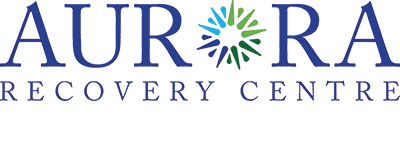Programs
At Aurora Recovery Centre we can help you grow in an ecosystem of understanding.
CONCURRENT DISORDERS

Concurrent disorders definition:
Your loved one has been diagnosed with ‘concurrent disorder’ — meaning an individual is struggling with substance abuse problems while also coping with some form of mental illness — you may feel helpless, hopeless, scared and possibly even guilt and shame.
While those feelings are natural, stigma can leave you reluctant to find a concurrent disorders program where experts can offer support. Recovery from concurrent disorders increases dramatically when a person receives prompt and effective treatment.
What are the most common concurrent disorders?
Concurrent mental health disorders affect individuals from all walks of life. According to the Centre for Addiction and Mental Health (CAMH), concurrent disorders fall into the following main groups:
- Substance use + mood and anxiety disorders
- Substance use + severe and persistent mental health disorders
- Substance use + personality disorders
- Substance use + eating disorders
- Other substance use + mental health disorders
Concurrent disorders signs and symptoms:
Because there’s no one symptom or group of symptoms common to all combinations of concurrent disorders, they can be difficult to accurately diagnose. Signs and symptoms can vary depending on such factors as the substance used, the amount taken, an individual’s family history, other health conditions and genetics.
It’s typically easier to diagnose concurrent disorders if an individual demonstrates symptoms of an addiction, such as substance abuse disorder, and a mental health disorder, such as depression, together. Concurrent mental health disorders can include obsessive compulsive personality disorder, anankastic personality disorder and codependent personality disorder. However, their symptoms may be active at different times and may vary in intensity and duration, depending on things like stress.
Concurrent disorders causes and risk factors:
Causes and risk factors can be a tangle web for concurrent disorders, meaning mental health and substance use disorder can affect each other in several ways. The CAMH reports:
- Substance use can worsen mental health problems or mimic or hide the symptoms of mental health problems.
- Individuals might turn to substance use to forget about the symptoms of mental health problems.
- Some substances can make mental health medications less effective.
- Using substances can make people forget to take their medications.
- When a person relapses with one problem, it can trigger the symptoms of the other.
About borderline personality disorder:
Someone with concurrent disorders may have a borderline personality disorder, a mental health disorder that impacts the way someone thinks and feels about themselves and others. An individual might have self-image issues, trouble managing emotions and behaviour, and a pattern of unstable relationships, for instance. An individual with borderline personality disorder has an intense fear of abandonment. Often, they find it difficult to be alone and though they want loving and lasting relationships, impulsiveness, frequent mood swings and inappropriate anger may push others away.
What is schizophrenia?
Individuals with this serious mental disorder interpret reality abnormally and may experience a combination of hallucinations, delusions, and extremely disordered thinking and behaviour. Schizophrenia impedes a person’s ability to function daily and may even be disabling. Early treatment may help get symptoms of this lifelong disorder under control before serious complications develop and improve a person’s long-term mental health.
About depression:
Though it’s easy to brush off depression as a temporary case of the blues, it’s a complex mental health condition that causes feelings of sadness or emptiness and/or a loss of interest in most or all normal activities. It can impact everything from work to relationships and can lead to emotional and physical problems like feelings of worthlessness and unexplained aches and pains. Fortunately, depression is treatable with medication, psychotherapy or a combination of the two.
What is a gambling disorder?
The availability and accessibility of gambling and especially sport gambling has increased dramatically. Most casual gamblers can stop when losing or set a limit on how much they’re willing to lose, but an individual with a gambling disorder – another example of a mental health disorder often associated with concurrent disorders – has an uncontrollable urge to play and will continue playing in hopes of recovering any losses. This disorder involves repeated problem gambling despite the toll it takes on an individual’s finances and relationships.

Diagnosis and treatment of concurrent disorders:
Those experiencing concurrent disorders signs and symptoms might seek concurrent disorders treatment. That’s encouraging because someone suffering from concurrent disorders experiences the greatest success when both problems are treated at the same time in a coordinated way.
The type and severity of their problems inform the concurrent disorders treatment plan, which might include individual or group therapy, medication or both. In some cases, it’s advisable to treat one problem first. Someone with concurrent mood and alcohol use disorders, for example, will likely recover better if the alcohol use disorder is treated first.
Seeking concurrent disorders treatment is an important first step to living a healthier and more fulfilling life. At Aurora Recovery Centre, our team of experienced professionals will support you as you cope with the difficult emotions that often arise during therapy and treatment.
Recovery from concurrent disorders requires a collaborative approach. Members of our team will work with one another and you to create an individualized plan to improve your mental health and address your substance use disorder. Learn how to deal with triggers and develop healthy coping strategies that will support you in your recovery and beyond.
GET HELP NOW
"*" indicates required fields
